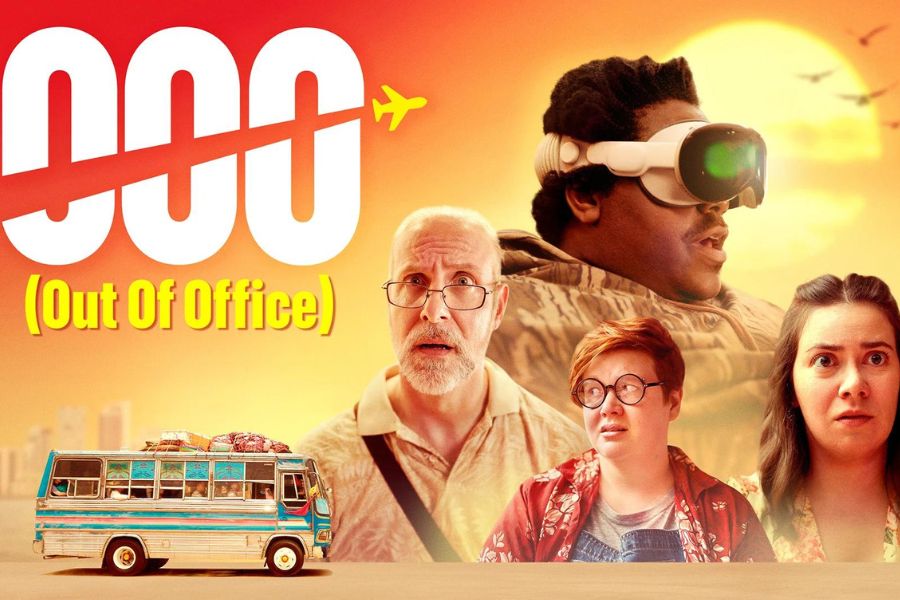Apple's recent ad depicting Thailand has sparked controversy among Bangkok's influencers and commentators.
The ad, part of the brand's ‘Apple at Work’ series, has been criticised for its outdated and stereotypical portrayal of the country, reminiscent of Thailand in the 1970s. While humorous and nostalgic for some, this depiction has been seen as offensive for others.
The nearly 10-minute feature, titled ‘The Underdogs: OOO (Out Of Office),’ follows four characters, known as the underdogs, who tackle workplace crises using Apple devices and software. The foursome embark on a work trip to Thailand, racing against the clock to find a factory that can produce a million custom boxes for their demanding tycoon client (Christopher Mintz-Plasse).
Critics on social media and industry-wide have argued the ad relies on clichéd images of Thailand, such as chaotic tuk-tuk rides and ragged taxi drivers, which many feel misrepresent the country, and undermines Thailand’s efforts to present itself as a modern and advanced economy.
Despite the backlash, Thailand’s prime minister, Srettha Thavisin, warmly received the ad, and the video had garnered over six million views before being pulled down by Apple, who turned the video private on YouTube as of Friday 2 August.
Campaign understands the ad was not produced by TBWA’s Media Arts Lab, Apple’s creative agency, but done in-house by the brand.
Speaking to Campaign on the ad, Jeremy Chia, co-founder, chief executive officer, and chief creative officer at Goodstuph Thailand, says Apple’s ‘The Underdogs’ series has always had an element of exaggeration. He notes it's unfortunate that they chose to exaggerate Thailand this time.
“Does it make the country feel backward? Yes. Was the ad doing it for a comedic effect? Also, yes. Advertising in Thailand thrives on not taking itself too seriously, but the sentiment seems that it wasn't the place for Apple to do it.” explains Chia
“It's the old adage—only we have the right to laugh about ourselves, so don't you dare do it, international brand! One young Thai colleague I spoke to told me that watching the ad makes the brand feel old, which I thought was interesting.”
Jan Harling, the CEO of Virtus Asia, has worked in Thailand for Foodpanda, Oppo, and TBWA and is currently living in the country with his family.
He says that while some of the elements in the film do exist, the 10-minute ad fails to portray modern Thailand accurately, relying on outdated and inaccurate stereotypes.
Harling notes that this ad fuels inaccurate perceptions about the country and does an injustice to this 'beautiful' nation, as many viewers may not recognise it as a parody if they have not visited Thailand before.
“While it’s true that traffic can be highly chaotic and tuk-tuks and scooter rides can provide an adrenaline rush, modern Bangkok offers some of the best hotels, hospitals, and shopping malls, rivalling those in major cities around the globe,” explains Harling.
“Thailand has a fantastic digital environment, including advanced banking and e-commerce, reflecting its embrace of modernity. Unfortunately, the ad's simplistic image does not depict the country's continuous evolution, placing it decades into the past.”
Harling also points out that Thailand's excellent airport and highway infrastructure further contradict Apple's outdated picture, leaving a negative impression, as it feels too clichéd and reminiscent of a ‘Hangover 2’ movie.
“However, it is positive to see in the film how friendly the people are and that Thailand is a place where solutions are always around the corner, demonstrating that it is a country where things get done efficiently,” says Harling.
“While Apple may have intended to cater to the stereotypical image many have of Thailand, this approach does a disservice to the country's recent developments and the evolution of the "land of smiles." It is no surprise that this has offended Thai people.”
Campaign has reached out to Apple for comment.
*This story has been updated on August 2 to reflect the removal of the ad from Apple's official social channels and a request by Apple to remove the video in our article.











